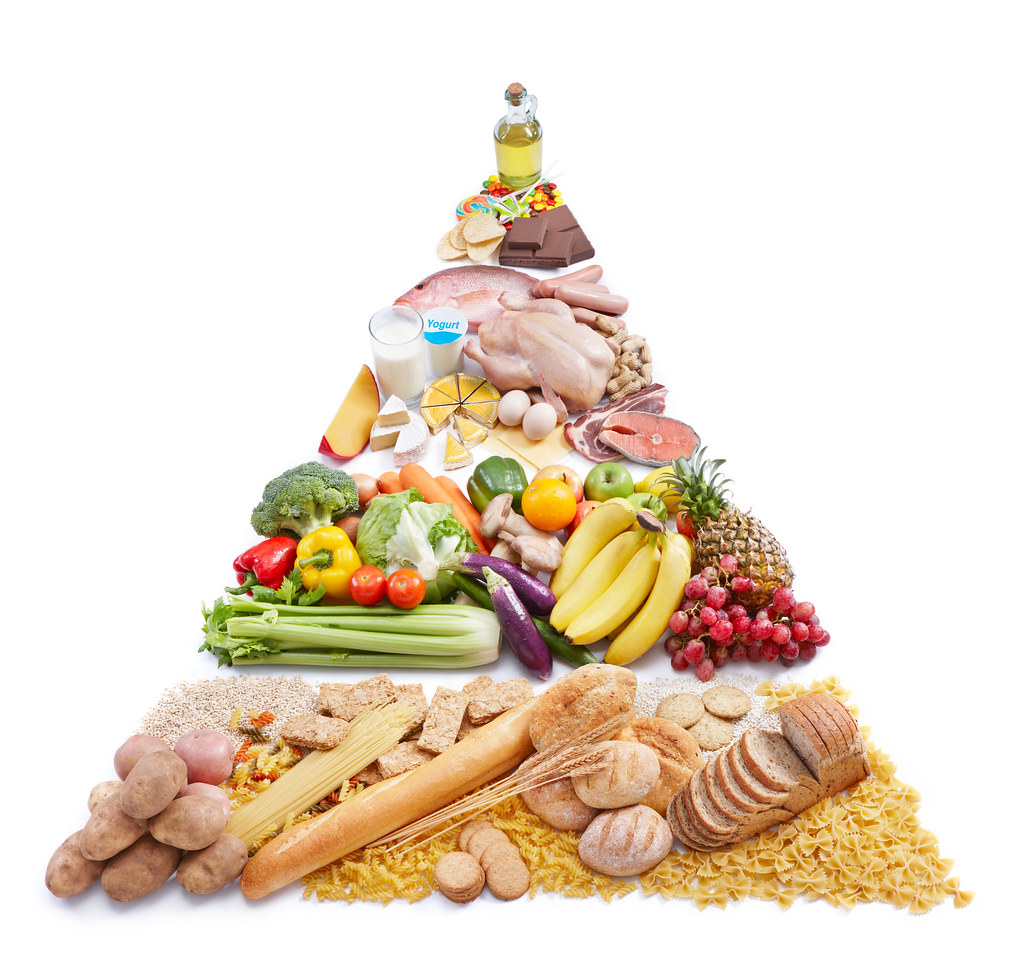Depending on how old you are, you probably remember having to learn about the food pyramid at some point in grade school—with bread and cereal (like grains and carbohydrates) at the bottom, and fats/oils/sugars at the top. However, continued research on particular food items has shown that the old pyramid needs to be revamped.
And it has been—quite a few times since food guides began in 1917. The first actual pyramid (described above) does not wholly conform to scientific research; that is, despite there being evidence that eating mostly whole foods and less carbohydrates is healthier, carbohydrates are still the base.

Above is the traditional food pyramid. So how has science changed the food pyramid/plate? How is it still changing it?
More Fruits and Veggies, Less Meat

This is the current federal food guide. While it is paying more attention to science, and protein, according to the USDA, it includes both animal and plant protein, studies have shown that plant protein is better than animal protein. Although fruits and vegetables only make up half of the recommended diet, it should be more.
Eating twice as much of the recommended amount of fruits and veggies reduces the risk of disease, according to a study by the International Journal of Epidemiology. Of course, it’s hard enough to get five servings—but trying sneaking it into snacks and dinner.

Science is telling us that we should be eating much more fruits, veggies, and plant-based protein. Of course, that’s pretty difficult with a college budget (especially when the food pyramid above is the one that is definitely more appealing and probably a more accurate reflection of what college students actually eat), but follow these tips on how to be healthy in the depths of tuition-induced poverty.
A good way to eat healthier is to gradually phase nutritious foods into your diet. It is perfectly fine to only eat a few servings of fruits and veggies—there’re just added benefits to eating more of them. So don’t sweat it too much, and stay informed about science-based nutritional information (which sometimes means being skeptical about new health/diet fads).


